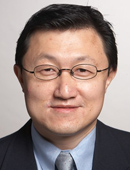Biography
Research Topics
Alzheimer's Disease, Apoptosis/Cell Death, Autophagy, Axonal Growth and Degeneration, Human Genetics and Genetic Disorders, Knockout Mice, Lysosomes/endosome, Molecular Biology, Neuro-degeneration/protection, Parkinson's Disease, Protein Degradation, Protein Kinases, Protein Trafficking & Sorting, Schizophrenia, Synapses
Alzheimer's Disease, Apoptosis/Cell Death, Autophagy, Axonal Growth and Degeneration, Human Genetics and Genetic Disorders, Knockout Mice, Lysosomes/endosome, Molecular Biology, Neuro-degeneration/protection, Parkinson's Disease, Protein Degradation, Protein Kinases, Protein Trafficking & Sorting, Schizophrenia, Synapses
Multi-Disciplinary Training Area
Disease Mechanisms and Therapeutics (DMT), Neuroscience [NEU]
Disease Mechanisms and Therapeutics (DMT), Neuroscience [NEU]
